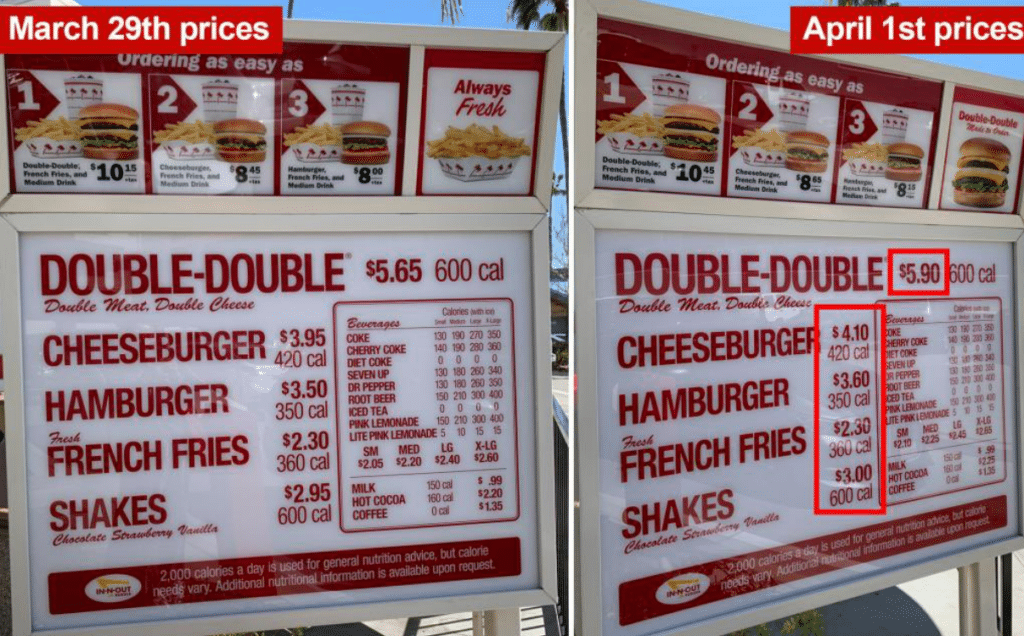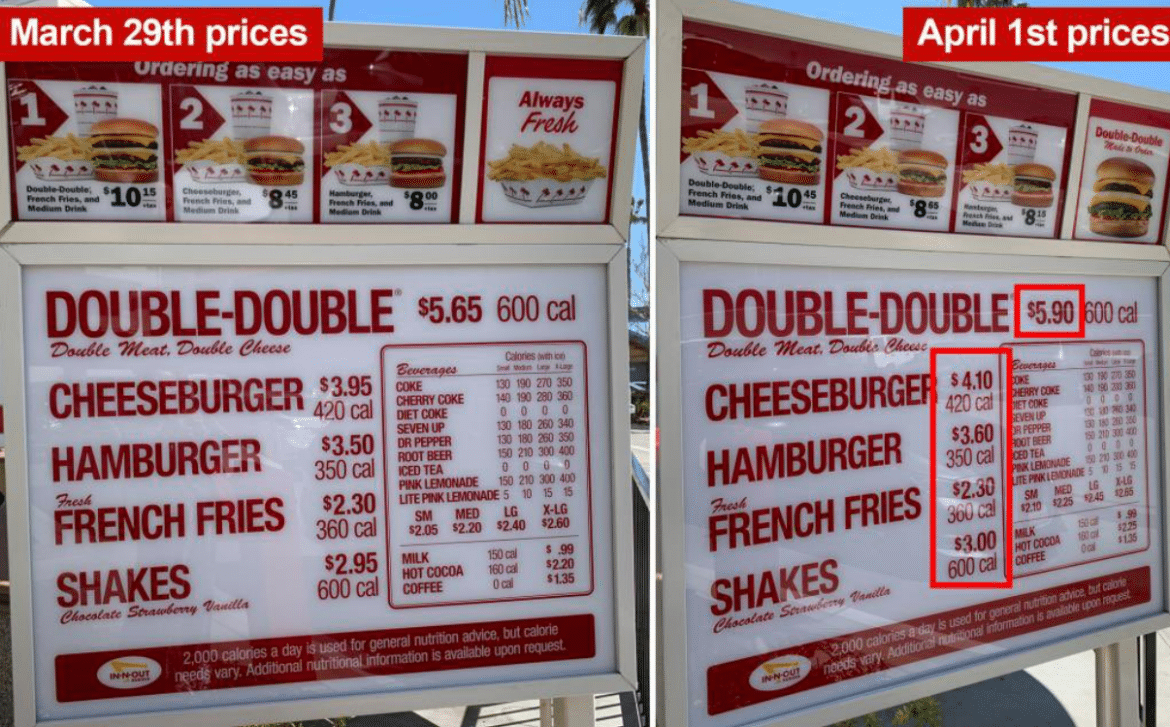
Effective this past Monday, a new law was enacted mandating a minimum wage of $20 per hour for fast-food workers in California.
According to the New York Post, numerous chains in the state have already adjusted their prices to accommodate the increased wage.
Previously, the minimum wage was $16 per hour.
In response to the wage increase, several chains have raised menu prices. Burger King increased prices for items such as the Texas Double Whopper meal and the Big Fish Meal, while In-N-Out Burger raised prices for burgers and soft drinks. Hart House, owned by Kevin Hart, also raised prices for milkshakes, sandwiches, and large fries. Although Chick-fil-A, McDonald’s, and Wendy’s have not yet raised prices, it is anticipated they may do so.
Governor Gavin Newsom praised the wage increase, but critics argue that it may lead to job losses as businesses seek to offset higher labor costs by reducing staff or increasing prices.
Fox News reported:
It’s a tale as old as time yet too often ignored by politicians: elected officials pass sweeping new policies and small businesses and consumers pay the price. Consider the new law in California mandating a $20-hourly minimum wage at quick-service restaurants across the state.
In the days leading up to the April 1 implementation date, the headlines were predictably awash with grim economic news. “Minimum wage increase in California could lead to layoffs” blared KNTV in San Francisco.
As business owners and their trade groups warned when the Fast Food Accountability and Standards Recovery (FAST) Act was first proposed in 2022, the chickens are finally coming home to roost in the form of higher prices, job cuts and shuttered businesses. But California politicians, who are beholden to the Service Employees International Union’s (SEIU) demands for fear of political retribution, chose not to listen.
The original version of the FAST Act would have been even more damaging. Negotiations yielded a compromise lowering the minimum wage from $22 to $20 and extended the timeline of its implementation from Jan. 1, 2023, to April 1, 2024. It also neutered the powers of a “Fast Food Council” to advisory-status rather than creating a new rule-making body.
Most importantly, the California compromise eliminated joint employer liability, which would have destroyed the franchise model by tying brands and their franchise owners together as one entity — long a prize for unions in their ongoing boondoggle to attempt to organize employees at franchised locations as one entity. Joint employer status erodes independence and autonomy from individual franchise owners, consolidating power with big business and big labor unions.
By their nature, compromises are never perfect, but in a state where one party controls all the levers of power, it was progress nonetheless.
That’s the good news. On the other side of the coin, the Biden administration’s National Labor Relations Board is pursuing a similar joint employer policy at the national level. Thankfully, the House of Representatives passed a repeal, and now the Senate must get the ball over the finish line. In the upper chamber, the effort enjoys bipartisan support, including from Sen. Joe Manchin, D-W.Va., and several other moderate Democrats.
Exporting policies too extreme for the Golden State is not a wise course of action for the rest of the country.
Not surprisingly, the layoffs have already begun.
The same day the law went into effect, a Fosters Freeze chain closed the store and laid off 20 employees. The owner explains that with that salary the numbers no longer made sense.
Watch:
On April 1st, California raised the minimum wages for fast food workers to $20/hour.
— End Wokeness (@EndWokeness) April 4, 2024
That same day, Fosters Freeze went out of business and laid off all 20 employees.
The owner says that he was crushed but is unable to sustain the wage hike as a small business owner.
Mass… pic.twitter.com/thJbuqLBfR
This week, California raised the minimum wage for fast food workers to $20/hour.
— End Wokeness (@EndWokeness) April 4, 2024
The bloodbath has already begun:
Pizza Hut laid off 1,200 workers
Mods Pizza closed 5 of their CA branches
Fosters Freeze shut down and laid off all their employees
Vitality Bowls cut their…




